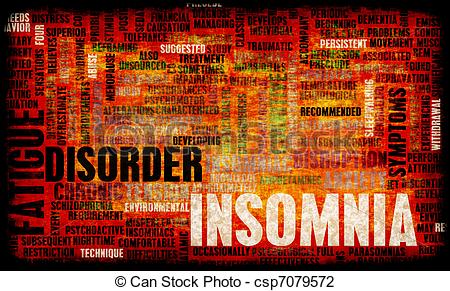Daniel Garcia
Circulation Manager
 In today’s busy and hectic society, it is often viewed as acceptable (and in some instances, even expected) for people to skip sleep in favor of work, studying, or activeness such as gaming or watching television. And as a rare occurrence, skipping a night of sleep or two will not cause much damage. However, habitually getting less than 3 hours of sleep or even skipping sleep entirely causes much more harm to the body than one might believe. In fact, it can actually be deadly.
In today’s busy and hectic society, it is often viewed as acceptable (and in some instances, even expected) for people to skip sleep in favor of work, studying, or activeness such as gaming or watching television. And as a rare occurrence, skipping a night of sleep or two will not cause much damage. However, habitually getting less than 3 hours of sleep or even skipping sleep entirely causes much more harm to the body than one might believe. In fact, it can actually be deadly.
Sleep is an important part of human body function. It allows the body time to rest and gives you the energy to continue functioning. As such, choosing to go without sleep is choosing to deny oneself one of the most vital aspects of human life.
It is no different than choosing to go without eating, without drinking, without urinating, etc. Skipping sleep is often brushed off as a harmless action, but the reality is far different. Sleep deprivation has many negative effects on your health.
Effect 1: Fatigue
One of the most obvious results is fatigue. Anyone who has gone without sleeping can testify that it results in difficulty thinking and concentrating. This, for obvious reason, causes a great deal of problems. The most dangerous of it’s results are car accidents.
Driving tired is often cited as one of the main causes of vehicle accidents, along with drunk driving and distracted driving. In fact, according to estimates by the National Highway Traffic Safety Administration estimates that fatigue is a cause in 100,000 auto crashes and 1,550 crash-related deaths a year in the U.S. It is also worth noting that most victims of these accidents are college age students (20-25).
Effect 2: Psychological Problems
Sleep deprivation also has links to psychological problems. Studies, such as one conducted in 2007 consisting of 10,000 people, show a trend that those who slept less than six hours a night were often diagnosed with clinical depression. In fact, insomnia is one of the hallmark symptoms of depression.
Sleep deprivation often results in mood swings as well, which puts strains on relationships. Sleep deprivation is also shown to cause a much lower sex drive in men and women, which does nothing to help.
Effect 3: Death
In the worst case scenarios, as unbelievable as it sounds, sleep deprivation can result in death. It is very rare, but it can happen. There is a condition called fatal familial insomnia, wherein the victim has increasingly worsening insomnia, which ultimately results in a complete inability to sleep.
Death follows soon after. Fortunately, it is very rare, but serves as a point that sleep deprivation is not something to just dismiss. In most people, the body will simply collapse from exhaustion before one reaches the point of death, but sleep deprivation over time causes increasing damage to the body. Sleep deprivation results in markedly increased risks for heart disease, diabetes, cancer and dementia.
In short, there is a reason why sleep deprivation is often used as a “enhanced interrogation technique” (or torture). A lack of sleep causes much more problems than simply making you forgetful or grumpy. By choosing to ignore one of your bodies most vital functions, you increase your risk of disease, make yourself much more irritable, and basically are torturing yourself. Before you choose to stay up “just one more hour” despite being exhausted, perhaps it is best to ask yourself which is more important; the paper you are writing, or your physical and mental well-being.
More Information
From List 25.
From The Doctors and Huffington Post.


Leave a Reply